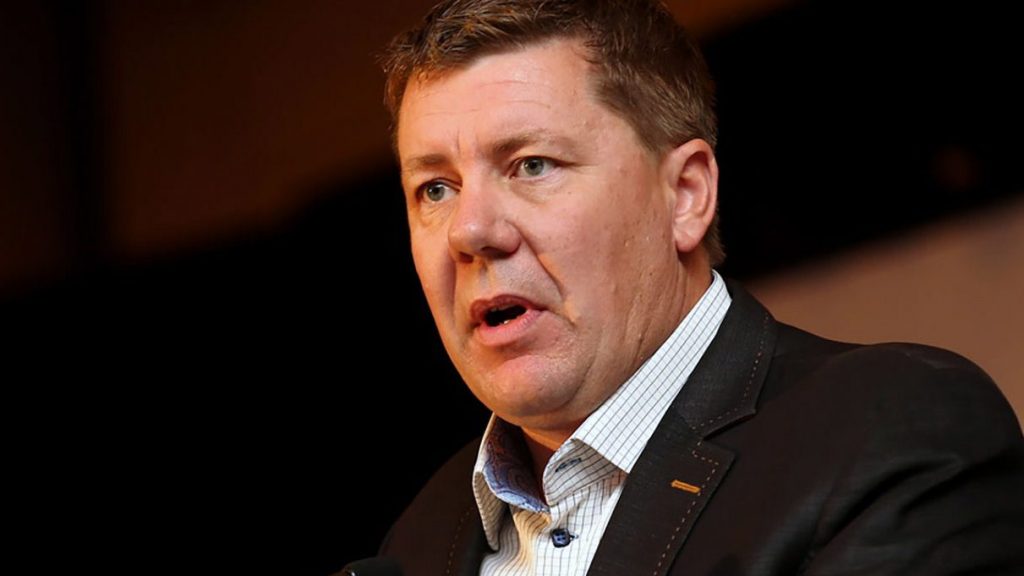REGINA — Saskatchewan legislators are back in the house, with Premier Scott Moe’s government promising to do more on affordability, to do better on health care and education, and to do their best to behave in the chamber.
The two-week sitting began Monday with the election of a new Speaker — Melfort legislature member Todd Goudy — and a throne speech outlining the priorities and goals of Moe’s governing Saskatchewan Party.
Before the speech, Moe told reporters his caucus would no longer send the Speaker harassing text messages and would follow the Speaker’s orders.
“It’s incumbent on me to ensure that I’m having the conversations with the team that I serve alongside,” Moe said when asked about texting issues.
“We will be critical of policy at times, also complimentary of policy at times, but always be respectful of all the members in that assembly.
“(The Speaker) is the arbitrator in the room and, as I would say, the most honourable position of all.”
The last Speaker, Randy Weekes, accused members of Moe’s Saskatchewan Party caucus of intimidation and harassment through text messages.
Weekes did not run in the Oct. 28 provincial election.
Goudy told the assembly he will put aside political biases in his new role and allow members to express opinions while preserving decorum.
He said he hopes members will treat one another with respect.
Moe said his caucus will lead by example.
“With respect to what a new beginning looks like…you’re just going to have to watch us,” he said.
“The tone is going to be a respectful one, and the effort that we are going to bring forward is to really quantify and clarify what a brighter future in Saskatchewan looks like.”
The start of the session comes nearly a month after the election, which delivered Moe’s party a slimmer majority with 34 seats in the 61-seat legislature. Carla Beck’s NDP is to form the Opposition with 27 seats.
It’s a stark rural-urban divide. The NDP captured all seats in Regina and all but one in Saskatoon, while the Saskatchewan Party dominated almost everywhere else.
The government’s first piece of legislation is to be the Saskatchewan Affordability Act.
The bill is to enact the Saskatchewan Party’s election campaign commitments to address affordability issues, including personal tax relief to save a family of four more than $3,400 over four years.
The province also plans to continue not charging the federal carbon levy on home heating, introduce a home-renovation tax credit and increase benefits for those with disabilities and families with kids in sports and arts.
On health care, Moe said he’s promising to hire more family doctors and shorten surgical wait times by ensuring 450,000 surgeries are performed over four years.
He also said the province wants to open additional urgent care centres in Regina and Saskatoon, along with others in smaller cities.
In education, the speech promises to expand a pilot program that would see 200 additional schools in Saskatchewan receive specialized help to deal with students with higher needs.
The government also promises more funding to help children from kindergarten to Grade 3 improve reading skills.
“A child’s ability to read at a level by Grade 3 is the single greatest predictor of future academic success,” Moe said.
The NDP dismissed the speech as a rehash of past promises that failed to take concrete action on problems in schools and hospitals.
“Scott Moe suggests he’s heard the message from the people of Saskatchewan that they want change, but he offers nothing of the sort,” Beck said in a statement.
“He’s pressing ahead with cuts to funding for hospitals and schools and doing nothing immediately to help make life more affordable for families.”
Saskatchewan Teachers’ Federation President Samantha Becotte said she welcomes education being listed as a priority in the speech but action is needed immediately.
“If we’re waiting until the (provincial) budget, we’re really waiting until September 2025 to have anything implemented in our schools,” she said.
“Students have waited a long time. They’re going without the supports that they need.”
©2024 The Canadian Press











Recent Comments
comments for this post are closed